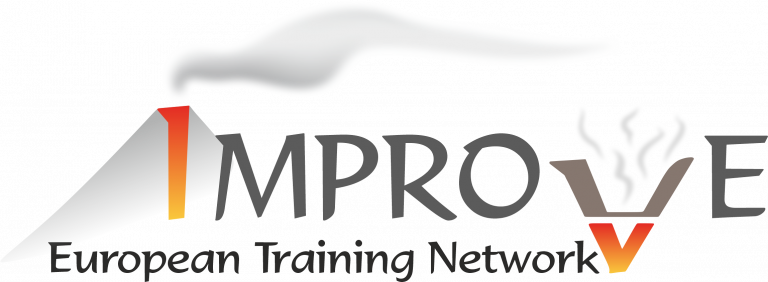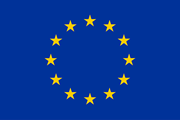Science-Industry Relationships
The research program naturally implies relationships with non-academic sectors, represented in IMPROVE by two technology-developing SMEs and by the Icelandic geothermal energy state company running the Krafla power plant. Science-industry relationships in IMPROVE involve therefore a) geothermal energy and b) technological development, and bring about mutual benefits to science and industry.
Geothermal energy
The Krafla caldera is the site of intense geothermal energy exploitation by the non-academic Partner LV, and the place where novel concepts in geothermal utilization and volcano exploration are being developed, represented by the Krafla Magma Testbed (KMT) concept (www.kmt.is), that gathers 30+ world organizations with the aim of directly observing and engineering the transition from the geothermal system into the magma, with monitoring and experimentation objectives as well as for superheated/supercritical fluid exploitation: a single supercritical well may provide one-two orders of magnitude more power than a conventional one. Geothermal system characterization and geothermal flow circulation are objectives of both industry, for energy production, and science, for volcano monitoring and forecasting. Nonetheless, volcano science and geothermal industry have largely progressed separately for decades, developing their own approaches, models, and interpretations, and mutually decreasing their potential for more in depth understanding and innovation. The IMPROVE consortium gathers key actors in geothermal system investigation for both scientific and industrial purposes, allowing us to foster and implement open, transparent cooperation between science and industry on the characterization and modelling of geothermal system dynamics. That is expected to result in substantial mutual benefits opening a path to closer, more effective science-industry cooperation in geothermal energy. With that purpose, the IMPROVE consortium agrees to guarantee fast and complete transfer of knowledge and results to Partner LV for their update and implementation of industrial strategies; and Partner LV agrees to guarantee open and complete access to their decades-long database and their expert knowledge, also providing logistical support to the consortium during the field campaigns. This is summarized in:
OBJECTIVE #3
IMPROVE will reignite science-industry relationships in the field of geothermal systems and energy, at a time when the energy crisis and concerns about global climate change determine pressing demand for renewable, low impact energy sources, by establishing fully open cooperation and exchange after decades of separate developments.
Technological developments
The planned research offers ideal conditions to science-industry collaboration in planning and developing new instruments tailored to critical scientific and industrial needs. Preliminary interaction between academic and non-academic Participants identified two key developments: 1) broad-band seismometers, and 2) gas analyzers, both capable of resisting the high temperature, acidic conditions in boreholes, for both scientific and industrial monitoring at Krafla. The development and testing of such new sensors and devices constitutes objectives shared by academic and non-academic Participants.
By fostering continuous dialogue and cooperation with participating technology-developing SMEs, science and industry will mutually benefit, from the availability of instruments tailored to real needs as well as from concentrating technological efforts on products responding to stakeholders’ needs thus increasing their potential for marketing and reducing commercial risk. That is summarized in:
OBJECTIVE #4
IMPROVE will create the most effective conditions for developing and testing new sensors and devices, and planning new technological advances, through effective cooperation between scientists and technology developing enterprises.
Network Workshop on “Business and industry-oriented science developments”
A topical element of WP6 is the organization of a Network Workshop on “Business and industry-oriented science developments”. Participation of non-academic sectors is planned to include geothermal, oil, gas and mineral industries, technology-developing enterprises, and major scientific organizations beyond the IMPROVE consortium; and is intended to innovate the relationships between Earth Sciences and industry–related sectors, through the joint definition of a vision and shared strategy. ESRs’ exposure to non-academic, productive sectors of the society, and their practical training on science-business relationships, are also objectives of the workshop.



